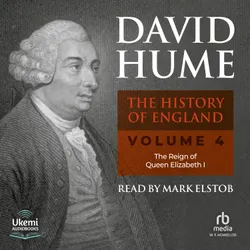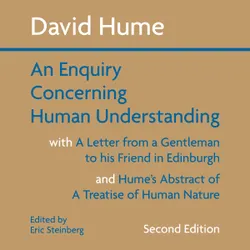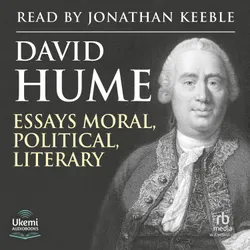David Hume's monumental work, "The History of England," spans six volumes, presenting a sweeping narrative that chronicles the evolution of England from the Roman invasion to the Glorious Revolution. Hume's literary style is characterized by clarity and eloquence, combining rigorous historical analysis with a philosophical approach that interrogates the nature of politics, power, and morality. Set against the backdrop of Enlightenment thought, Hume's work reflects the tension between empirical observation and speculative reasoning, as he integrates sociopolitical context with a critique of historical narratives prevalent during his time. As a prominent philosopher, historian, and essayist, David Hume's intellectual pursuits were deeply shaped by his Scottish Enlightenment contemporaries. Hume's exposure to diverse philosophical currents, coupled with his experiences of the political turbulence in Britain, inspired him to explore the complexities of historical change and character. His objective lens, combined with an analytical yet engaging narrative voice, invites readers to consider the interplay between events and human nature across the ages. Hume's "The History of England" is essential for anyone seeking to understand the intricate tapestry of English history and the philosophical underpinnings of historical interpretation. It is a profound exploration that enriches not only the historian's understanding but also the general reader's appreciation of the past, making it a valuable addition to any library.

50 Meisterwerke der Philosophie : Metaphysik, Das Gastmahl, Bhagavadgita, Tractatus logico-philosophicus, Kritik der reinen Vernunft, Also sprach Zarathustra, Selbstbetrachtungen von Marcus Aurelius
Ludwig Wittgenstein, Edmund Husserl, Karl Marx, Søren Kierkegaard, Friedrich Nietzsche, Ralph Waldo Emerson, John Stuart Mill, Georg Wilhelm Friedrich Hegel, Friedrich Schelling, Johann Gottlieb Fichte, Immanuel Kant, John Locke, Montesquieu, Jean Jacques Rousseau, David Hume, Gottfried Wilhelm Leibniz, Baruch Spinoza, Konfuzius, Laotse, Platon, Xenophon, Aristoteles, Marcus Tullius Cicero, Seneca, Epiktet, Marc Aurel, Plotin, Thomas von Aquin, Nicolaus von Cues, Erasmus von Rotterdam, Niccolò Machiavelli, Tommaso Campanella, Martin Luther, Giordano Bruno, Samuel von Pufendorf, Abbé Castel de Saint-Pierre, Michel de Montaigne, René Descartes, Francis Bacon, Blaise Pascal
book
The History of England Volume 6 : Containing the Commonwealth, Charles II and James II
David Hume
audiobook
The History of England Volume 5 : James I and Charles I
David Hume
audiobook
The History of England Volume 4 : The Reign of Queen Elizabeth I
David Hume
audiobook
The History of England Volume 3 : From Henry VII to Mary
David Hume
audiobook
An Enquiry Concerning Human Understanding: with A Letter from a Gentleman to his friend in Edinburgh and Hume’s Abstract of A Treatise of Human Nature
David Hume
audiobook
The History of England Volume 2 : King Henry III to King Richard III
David Hume
audiobook
The History of England Volume 1 : From the Invasion of Julius Caesar to King John
David Hume
audiobook
An Enquiry Concerning the Principles of Morals and Other Works
David Hume
audiobook
Essays, Moral, Political, and Literary
David Hume
audiobook
Die größten Philosophen der Aufklärung : Neues Organon, Kritik der reinen Vernunft, Der Gesellschaftsvertrag, Candide, Monadologie, Mathematische Principien der Naturlehre
Jean-Jacques Rousseau, Voltaire, Denis Diderot, David Hume, Johann Gottfried Herder, John Locke, Thomas Hobbes, Benjamin Franklin, Francis Bacon, Immanuel Kant, Montesquieu, Baruch Spinoza, Isaac Newton, Freiherr Gottfried Wilhelm von Leibniz, René Descartes
book
Philosophie der Aufklärung : Die wichtigsten Werke von Immanuel Kant, John Locke, Rousseau, Voltaire, Denis Diderot, David Hume, Leibniz, Johann Gottfried Herder
Johann Gottfried Herder, Montesquieu, David Hume, Denis Diderot, Jean-Jacques Rousseau, John Locke, Thomas Hobbes, Benjamin Franklin, Francis Bacon, Immanuel Kant, Baruch Spinoza, Isaac Newton, Freiherr Gottfried Wilhelm von Leibniz, Voltaire, René Descartes
book
